- Home
- Amy Harmon
What the Wind Knows Page 5
What the Wind Knows Read online
Page 5
He wrote of the release, just before Christmas 1916, of the last of the Irish freedom fighters, as he called them. He went to Dublin to see them home and remarked at the welcome, at the change in the people. “When we marched through the streets the day after Easter, with all intentions of staging a rebellion and inciting a confrontation, the people jeered and told us to go fight the Germans. Now they welcome the boys home like they are returning heroes instead of troublemakers. I am glad of it. Maybe the hearts of the people have turned enough that real change is possible. Mick seems to think so.”
Mick? Michael Collins was known as Mick among his friends. The picture I’d seen made me think Thomas Smith was well acquainted with him. The journal was a treasure trove, and I wondered why Eoin hadn’t given it to me much earlier. He knew I was knee-deep in research about events that Thomas Smith had seemed to know intimately.
My eyes were growing heavy, and my heart had not recovered from the odd emotional toll of my visit to Ballinagar. I moved to set the book aside, and the pages fell forward, revealing the final page. Instead of a journal entry, four stanzas marched across the yellowed paper. No title, no explanation, just a piece of poetry written in Thomas Smith’s hand. It sounded like Yeats. It felt like him too, though I’d never seen it before. I wondered if it was possibly the poem about the woman who drowned in the lough, the poem the owner of the candy store had mentioned just that morning. I read the words and read them again. The lines were so filled with longing and trepidation, I couldn’t tear my eyes from the page.
I pulled you from the water
And kept you in my bed.
A lost, forsaken daughter
Of a past that isn’t dead.
Somehow love from sweet obsession
Branched and broke a heart of stone.
Distrust became confession,
Solemn vows of blood and bone.
But in the wind, I hear the strain,
Pilgrim soul that time has found.
It moans to whisk you back again.
Bid me follow, sweetly drown.
Don’t go near the water, love.
Stay away from strand or sea.
You cannot walk on water, love.
The lough will take you far from me.
I turned the page and was met with the leather-bound back of the book. There was nothing else written. Pilgrim soul that time has found. Yeats referred to a pilgrim soul in his poem “When You Are Old.” But this was not Yeats, I was certain, though it was beautiful. Maybe Thomas Smith had simply loved it and wanted to remember it. Or maybe the words were his.
“Don’t go near the water, love. Stay away from strand or sea. You cannot walk on water, love. The lough will take you far from me,” I read again.
In the morning, I would take Eoin’s ashes to Lough Gill. And the lake would take him. I shut the book softly and turned off the lamp, drawing the spare pillow on the bed to my chest, lonely and alone in a way I’d never been. The tears came then, a deluge, and there was no one to pull me from the water and keep me in his bed. I wept for my grandfather and wept for a past that was dead, and I felt forsaken when the wind refused to whisk me away.
11 July 1916
Eoin turned one today. He is a smiley lad, healthy and content. I find myself watching him, absorbed in his perfect innocence and unblemished spirit. And I mourn for the day when he will grasp what he’s lost. He wanted his mother in the days after Dublin and cried for her. He had not yet been weaned from her milk, and he sought a comfort no one else could give. But he doesn’t ask for her anymore. I doubt he’ll have any memory of them at all, and the tragedy of that truth weighs on me.
There is a rumbling in rural Ireland spurred on by the executions after Easter week. Some men were spared—Eamon de Valera, who was in command at Boland’s Mill—while others, Willie Pearse and John MacBride, men on the periphery, were sentenced to death. Instead of the executions and imprisonments tamping down the rebellious undercurrent in the country, it seems to have fed it, contributing to a growing sentiment that another injustice has been done. We simply add it to the centuries-old list every Irishman keeps tucked in the back of his mind and hands on to the next generation.
Regardless of the rumbling, the people are wounded and afraid. We are in no position to fight back now. Not yet. But there will come another day. When Eoin is a man, Ireland will be free. I have promised this to him, whispering the words into his downy hair.
Brigid has begun to mutter about taking Eoin to America. I have not discouraged her or made my feelings known, but I can’t bear to lose Eoin too. He has become mine. My stolen child. Brigid worries that I will marry, and then I will not need her to keep house and look after me. On that count, I have reassured her often. She and Eoin will always have a place in my home. I have not told her that when I close my eyes, I see Anne’s face. I dream about her, and my heart is unsettled. Brigid would not understand. I’m not sure I do. I didn’t love Anne, but she haunts me. If I had found her, maybe it would be different.
But I didn’t find her.
T. S.
4
THE MEETING
Hidden by old age awhile
In masker’s cloak and hood
Each hating what the other loved,
Face to face we stood.
—W. B. Yeats
Deirdre didn’t seem especially surprised to see me, and she beamed at me in cheerful welcome when I walked through the library door the next day.
“Maeve sent you to Ballinagar. Any luck?” she asked.
“Yes. I found them—where they are buried, I mean. I’m going to go back tomorrow and put flowers on their graves.” The tender feelings I’d had among the grass and the stones welled in me again, and I smiled awkwardly, embarrassed that I was, once more, becoming overly emotional in the librarian’s presence. I cleared my throat and retrieved the picture of the house I’d tucked between the pages of Thomas Smith’s journal and held it out to Deirdre, brandishing it like a shield.
“I wondered if you could tell me where this is?” I asked.
She took it, looking down through the lower half of her glasses, her chin jutting forward, her eyebrows raised.
“That’s Garvagh Glebe,” she said, delighted. “This is an old picture, isn’t it? Goodness! When was this taken? It really doesn’t look all that different. Except for the carpark off to the side. I think there’s been some guest cottages added in recent years as well.” She squinted at the picture. “You can just see Donnelly’s cottage there in the trees. It’s been there for longer than the manor. Jim Donnelly fixed it up about ten years ago. He takes tourists out on the lake and out exploring the old caves where smugglers used to store arms during the Black-and-Tan War. My grandfather told me the lough was used to move weapons in and out of this area all through those years.”
“Garvagh Glebe,” I breathed, stunned. I should have known. “It was owned by a man named Thomas Smith, wasn’t it?”
She looked at me blankly. “When would that have been?”
“In 1916,” I said, sheepish. “I guess that was a little before your time.”
“Just a bit,” she laughed. “But I might remember something about that. Well, I don’t know. I think so. The house and property are run from a family trust. None of the family live there now. They have groundskeepers and a staff, and they let out rooms. It’s on the Dromahair side of Lough Gill. Some folks call it the manor.”
“You mentioned the manor yesterday. I didn’t realize.”
“Yes. There’s a dock there as well, and people rent boats from Jim to fish or just spend the day on the lake. The lake leads to a little inlet. When the tides are high, you can follow the inlet all the way out past the strand in Sligo and into the sea. There are stories of pirate ships in Lough Gill back in the days of O’Rourke, the man who built the castle—they call it Parke’s Castle. Have you been?”
I nodded, and she babbled on with barely a pause.
“He built Creevelea Abbey as well. O’Ro
urke was hung for treason by the English for giving shelter to marooned Spanish sailors of the Spanish Armada. The English king gave O’Rourke’s castle to a man named Parke—can you imagine working for twenty years to build something that would survive for centuries and having someone just swoop in and take it away?” She shook her head in disgust.
“I’d like to see Garvagh Glebe. Is the house open to visitors?”
She gave directions much the way Maeve had the day before. “Go left for a bit; go right for a bit more. Pull over and ask if you get lost, but you shouldn’t get lost because it’s not that far.”
I listened intently, scratching notes into the little pad from my purse. “Thank you, Deirdre. And if you talk to Maeve, would you thank her for me as well? It meant a great deal to me to find those graves.”
“Maeve O’Toole is a veritable fountain of information. She knows more than all the rest of us put together. I’m not surprised she knew something about your kin.”
I turned to leave and stopped, realizing I’d heard the name before.
“Maeve’s last name is O’Toole?”
“It was her maiden name. It’s been McCabe and Colbert and O’Brien. She’s outlived three husbands. It got a bit confusing, so most of us just stick with what came first. Why?”
“No reason.” I shrugged. If Maeve’s family had once lived at Garvagh Glebe, she hadn’t mentioned it, and I hadn’t read far enough into the journal to know what became of the O’Tooles Thomas had tried to help.
The lane to Garvagh Glebe was gated, and the gate was closed and padlocked. I could see the house through the trees. The photograph come to life, drenched in color but just as unattainable. I pushed a buzzer to the left of the gate and waited impatiently for a response. None came. I climbed back in the car, but instead of going back the way I’d come, I took the fork, following the lane that ran along the lake, hoping to see the house from another angle. Instead, the narrow road ended in a gravel parking lot overlooking a long dock where a handful of canoes and small boats were tied off. The cottage Deirdre had mentioned, which was gleaming white under blue shutters and matching blue trim, was nearest the dock, and I walked toward it, hoping someone was home. A little sign hung from a nail next to the door and declared the establishment open, and I went inside.
The tiny foyer had been converted to a reception area with a narrow wooden counter and a few folding chairs. A little bell had been placed on the counter, and I tapped it reluctantly. One of the nuns in Catholic school had had one just like it on her desk that she pinged constantly and ferociously. The sound had put my teeth on edge ever since. I didn’t ring it again, though several minutes passed without a response.
“Mr. Donnelly?” I called. “Hello?”
The door opened behind me, and I turned expectantly. A man with watery eyes and a red nose ambled in with tall waders on his feet, a baker boy cap on his head, and suspenders keeping his pants from falling down. I startled him, and he jerked, wiping at his mouth.
“I’m sorry, miss. I didn’t know you were waitin’ on me. I saw your car, but I assumed it was someone takin’ a stroll or throwin’ a line.”
I stuck out my hand, and he took it awkwardly. “I’m Anne Gallagher. I was wondering if I could rent a boat for an hour.”
“Anne Gallagher?” he asked, his brow furrowed, his voice disbelieving.
“Yes?” I said, drawing out the word. “Is there something wrong?”
He shrugged and shook his head. “Nah. It’s nothin’,” he grunted. “I can take you out if you want. There’re clouds rollin’ in, and I don’t like people goin’ out alone.”
I didn’t want to tell him I was throwing ashes into his lake, and I really didn’t want him with me when I said goodbye to Eoin. “I won’t go far. You’ll be able to see me the whole time. I’ll take a paddleboat or one of those small rowboats I saw on the dock. I’ll be fine.”
He stewed, eyeing me and peering out the window to the overcast afternoon and the boats bobbing, empty, at his dock.
“I just need a half hour, Mr. Donnelly. I’ll pay double,” I pressed. Now that I was here, I wanted to be done with the task before me.
“All right. Sign here, then. But stay close and watch the clouds.”
I signed his waiver, plunked forty pounds down on the counter, and followed him to the dock.
The boat he chose for me was sturdy enough, though it had clearly seen better days—or a better decade. Two oars and a life jacket completed the package, and I put one on to allay Mr. Donnelly’s concerns. One of the straps was broken, but I pretended it was perfectly fine. Mr. Donnelly had offered to put my things in a small locker in the foyer, but I declined. The bag held Eoin’s urn, and I wasn’t about to pull it out in front of him.
“Your bag will get wet. And you aren’t dressed for the lake,” he complained, eyeing my clothes and my slim flats. I’d worn a heavy cable-knit sweater, a plain white blouse, and cream slacks. This was the only burial Eoin would receive, and sneakers and jeans were too informal for the occasion.
My thoughts tiptoed back to Ballinagar Cemetery once more, to the stones in the grass I’d visited the day before. I wanted that for Eoin. A monument that he had lived. Something permanent. Something with his name and the span of his life. But that was not what he’d asked for, and leaving a grave in Ballinagar, a grave no one would visit or care about once I returned to the States, seemed wrong too.
I’d made a promise, and with a sigh, I grasped Jim Donnelly’s hand, stepped into the swaying skiff, and took up the oars in determination. Mr. Donnelly looked down at me doubtfully before untying the boat and giving it a good shove with his foot.
I dipped the oar into the water to my left and then to my right, experimenting a little, trying to find a rhythm. The boat cooperated, and I began to inch away from the dock. I would just row a little way out. The skies had grown gray, but the water was placid and peaceful. Mr. Donnelly watched me for a while, making sure I had the hang of it before making his way back up the dock toward the beach and his cheery house with the blue roof and the gorse blooming along the walk.
I was pleased with myself, moving smoothly through the water. The stretch and pull of rowing was new to me, but the lake was as calm as bathwater, lapping softly against the boat, and I found I enjoyed the motion. Sitting for hours at my writing desk was not conducive to good health, and I’d found if I forced myself to exercise, it aided me in my writing. I ran and forced myself to do push-ups to keep my arms from wasting away and my back from growing a hump. The sweat, the motion, and the music that blared in my ears all contributed to getting me out of my head for a blessed hour. It shook off the brain fog and got the synapses firing, and I’d made it part of my daily schedule in the last ten years. I knew I was fit enough to row out a way and have some privacy to talk to Eoin before I gave him to the wind.
My oars slid in and out, pulling and displacing the water with hardly a murmur. I wouldn’t go far. I could see the dock behind me, and beyond that, the manor tucked back against the roll of the hills, its pale roofline stark against the green. I continued rowing, the bag with the urn at my feet, my gaze drifting away from the shore and up into the sky. It was strange, the gray sky melding with the water. All was quiet, almost otherworldly, and I was lulled by the stillness. I ceased rowing for a time and drifted, the shoreline to my right, the sky all around me.
I picked up the urn and cradled it for a heartbeat, then uncorked it, readying myself for the ceremony only I would attend.
“I brought you back, Eoin. We’re here. In Ireland. Dromahair. I’m in the middle of Lough Gill. It’s lovely, just like you described, but I’ll hold you responsible if I get pulled out to sea.” I tried to laugh. We had laughed so much, Eoin and I. What was I going to do without him?
“I’m not ready to let you go, Eoin,” I choked, but I knew I had no choice in the matter. The time had come to say my last goodbyes. I said the words he’d said to me a hundred times growing up, words from a poem by Yeats, words
that I would have put on his headstone, had he allowed me to bury him as I wished.
“Faeries, come take me out of this dull world,
For I would ride with you upon the wind,
Run on the top of the disheveled tide,
And dance upon the mountains like a flame.”
I clutched the urn to my chest a moment more. Then with a silent prayer to the wind and water to forever keep Eoin’s story on the breeze, I upended it, flinging my arm in a wide arc, gasping as the white ashes melded completely with the wispy tendrils of mist that had begun to settle around me. It was as though the ash became a wall of white fog, billowing and collecting, and suddenly I could not see beyond the end of my boat. There was no shoreline, no sky—even the water was gone.
I put the urn in my bag and sat that way for a while, hidden in the fog and unable to continue. The boat rocked me as Eoin had once done, and I was a child again, cradled in his lap, consumed by grief and loss.
Someone was whistling. I started, the tune instantly recognizable. “Remember Him Still.” Eoin’s favorite. I was out in the middle of the lake, and someone was whistling. The whistling shivered through the mist, a cheerful flute in the eerie white, disembodied and disparate, and I couldn’t tell from which direction it originated. Then the sound waned, as if the whistler moved away, teasing me with his game of hide-and-seek.
“Hello,” I called, lifting my voice into the mist just to make sure I still could. The word didn’t echo but sat flatly in the air, cushioned by moisture and curtailed by my own reluctance to break the stillness. I grasped the oars but didn’t begin rowing, suddenly uncertain of my direction. I didn’t want to come out on the other side of the lake. Best to let the fog lift before attempting to row back to shore.

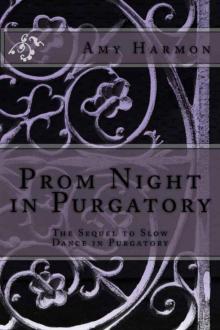 Prom Night in Purgatory
Prom Night in Purgatory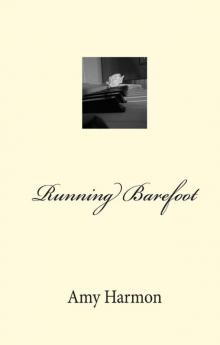 Running Barefoot
Running Barefoot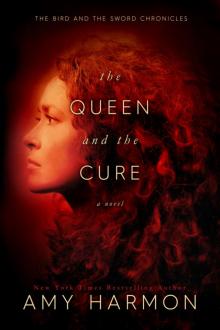 The Queen and the Cure
The Queen and the Cure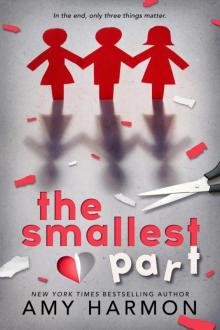 The Smallest Part
The Smallest Part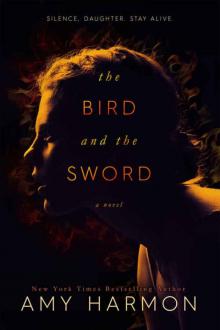 The Bird and the Sword
The Bird and the Sword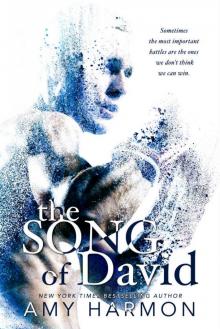 The Song of David
The Song of David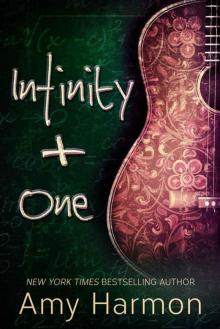 Infinity + One
Infinity + One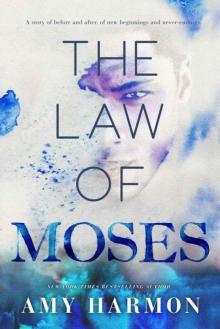 The Law of Moses
The Law of Moses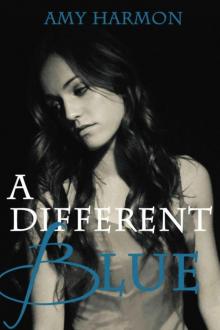 A Different Blue
A Different Blue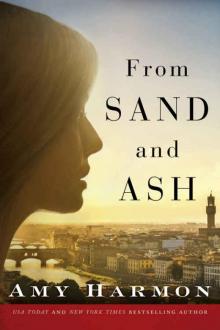 From Sand and Ash
From Sand and Ash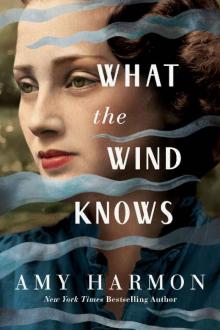 What the Wind Knows
What the Wind Knows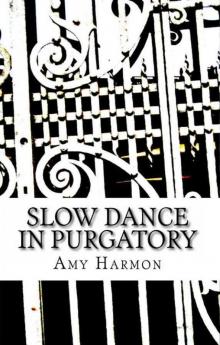 Slow Dance in Purgatory
Slow Dance in Purgatory Romance Through the Ages
Romance Through the Ages